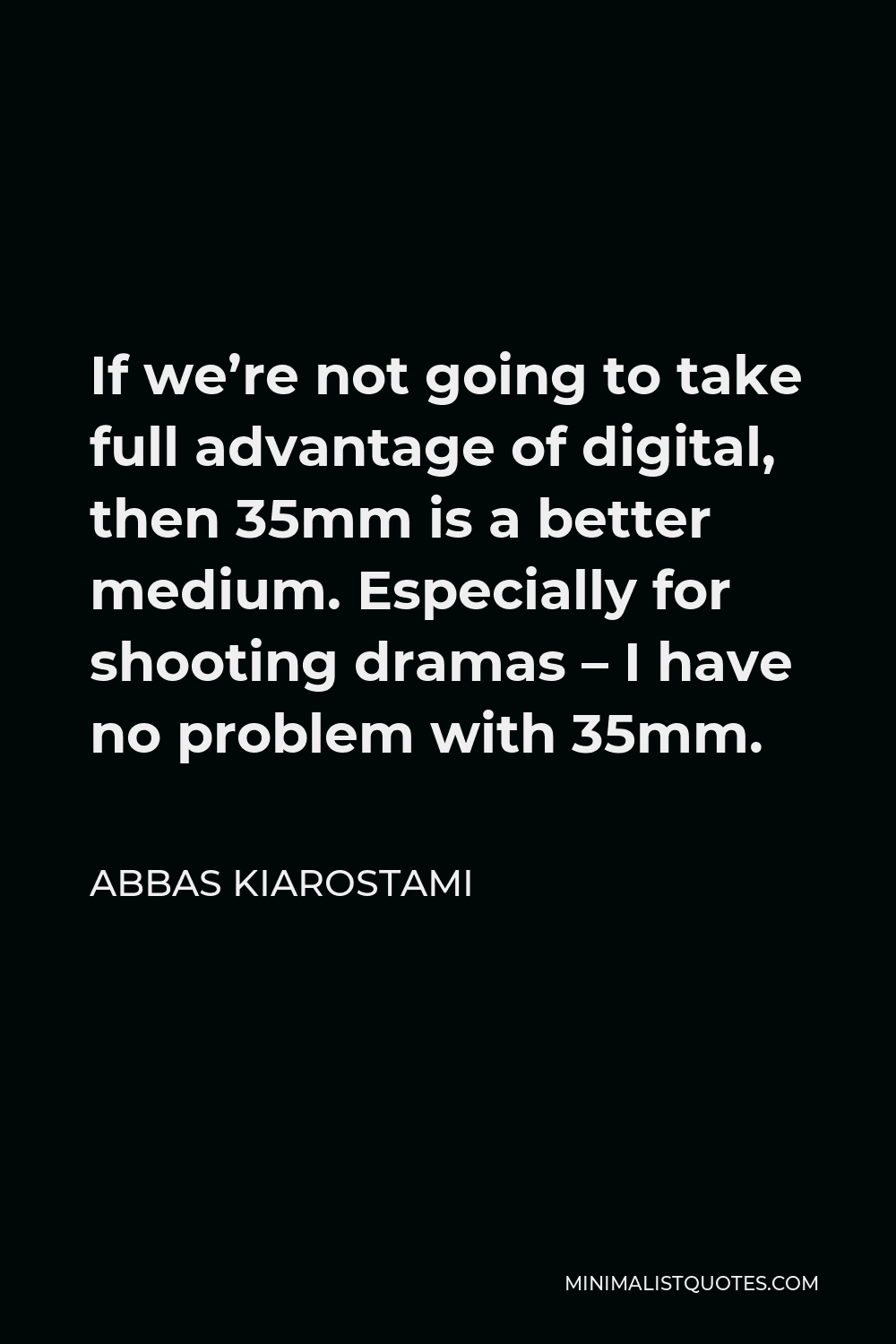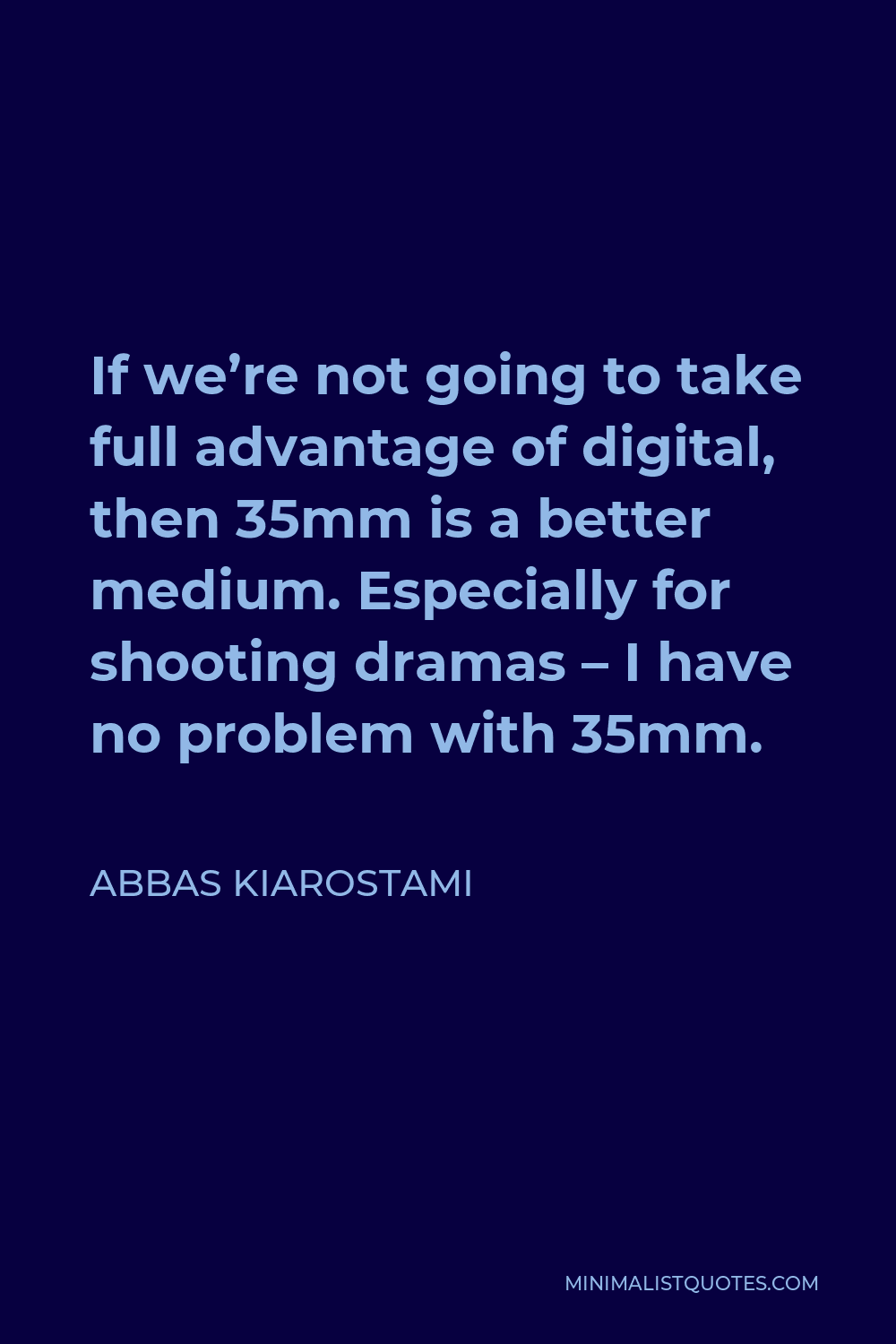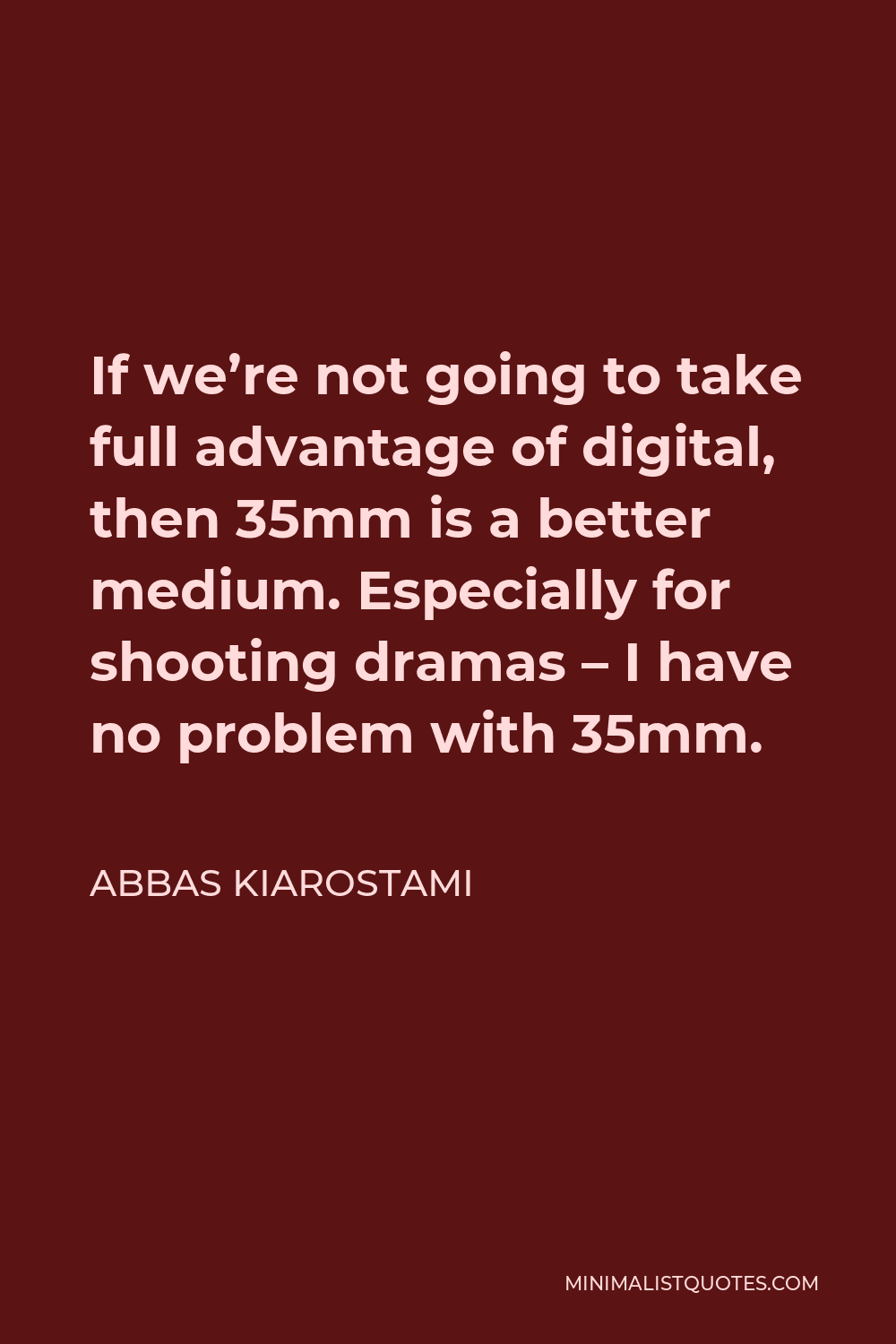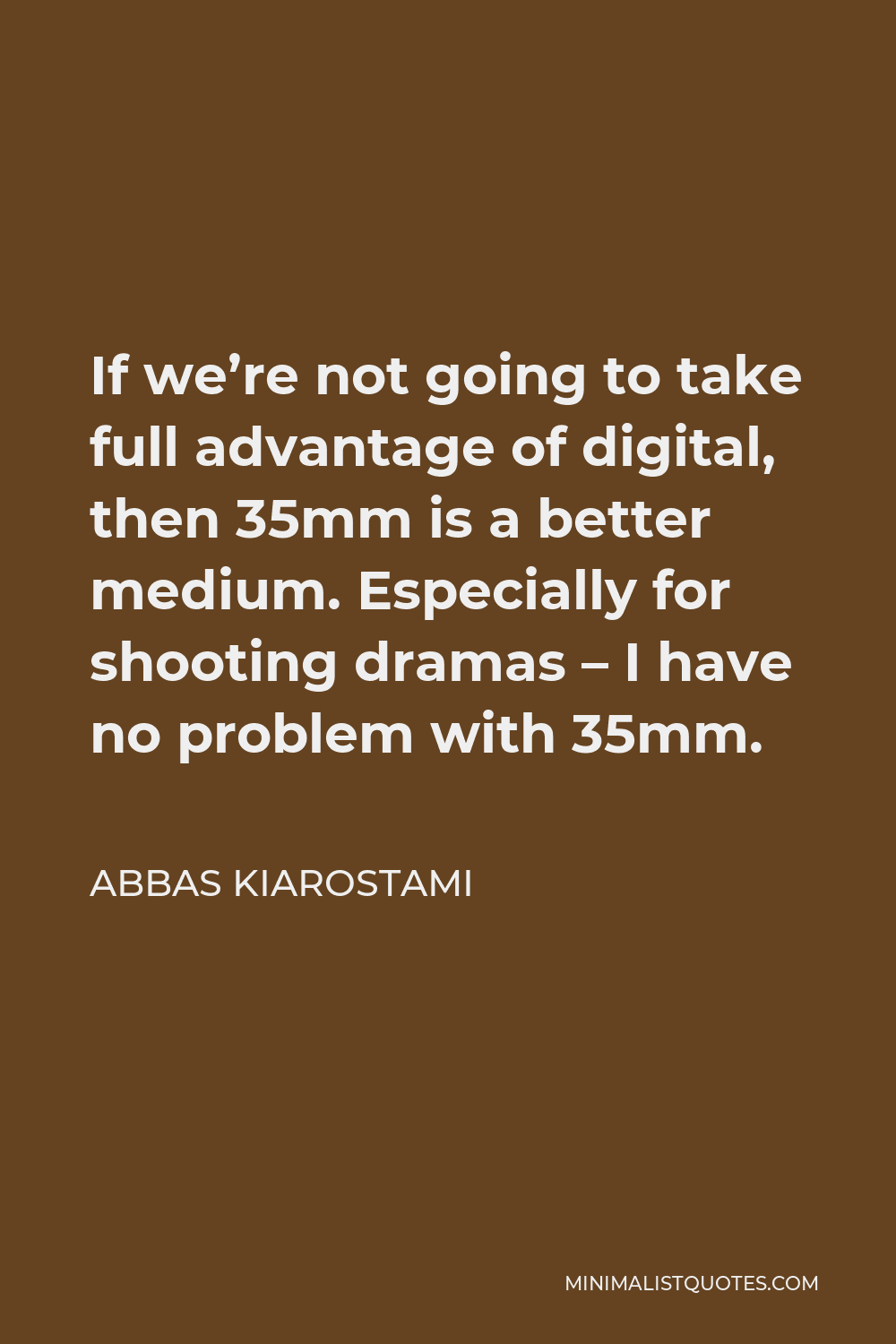It’s not so much a question of whether we’ve shot it through 35mm or digital video; what is important is whether the audience accepts it as real.
ABBAS KIAROSTAMIIf we’re not going to take full advantage of digital, then 35mm is a better medium. Especially for shooting dramas – I have no problem with 35mm.
More Abbas Kiarostami Quotes
-





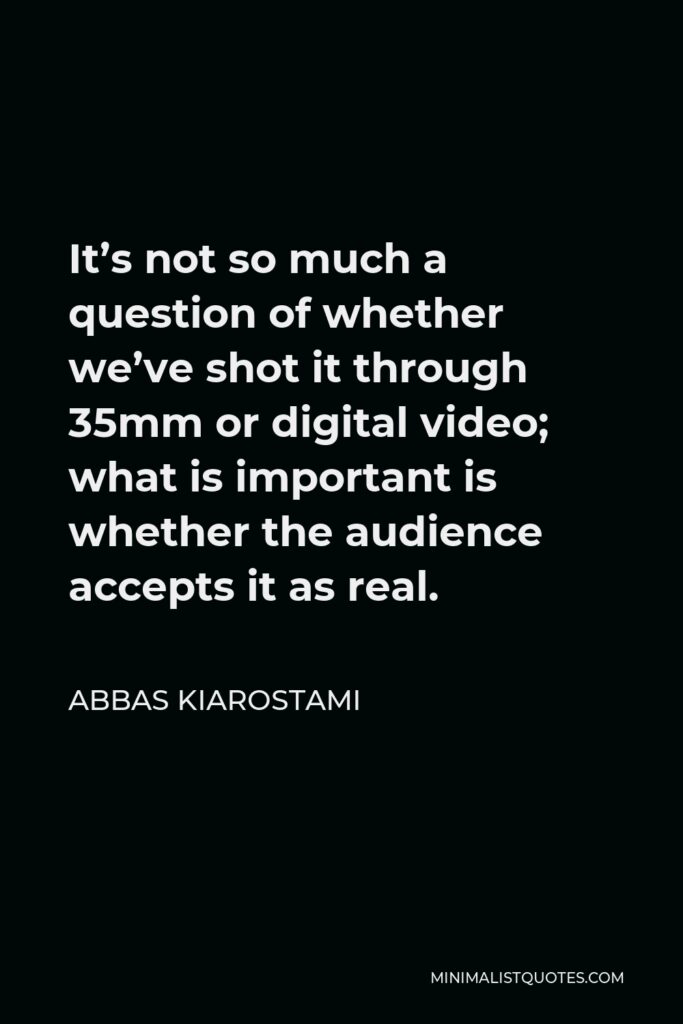

-





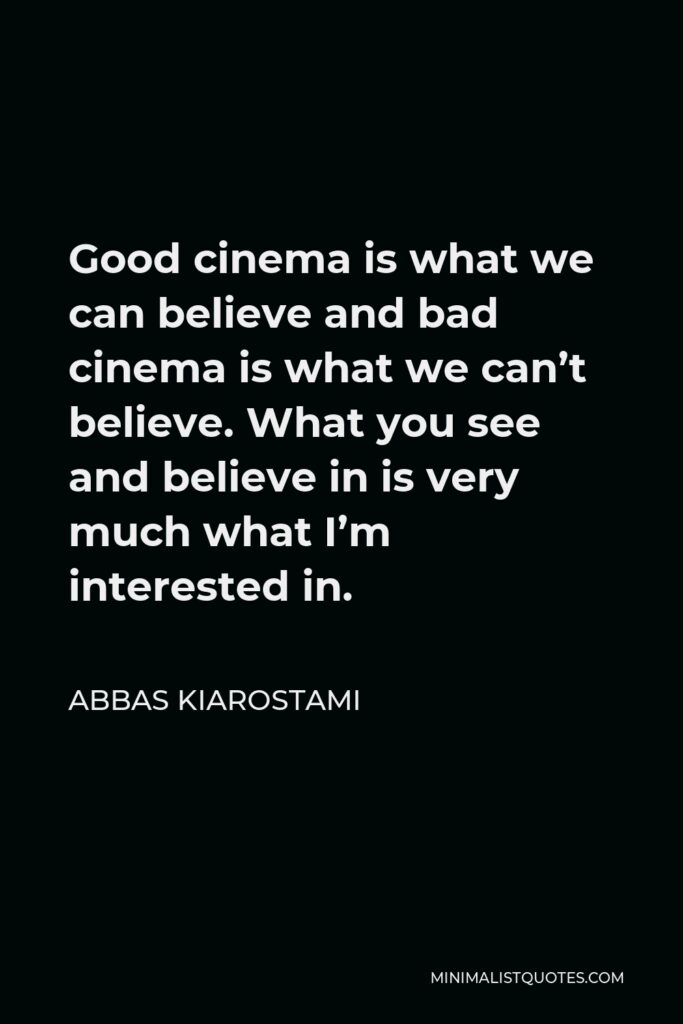

Good cinema is what we can believe and bad cinema is what we can’t believe. What you see and believe in is very much what I’m interested in.
ABBAS KIAROSTAMI -





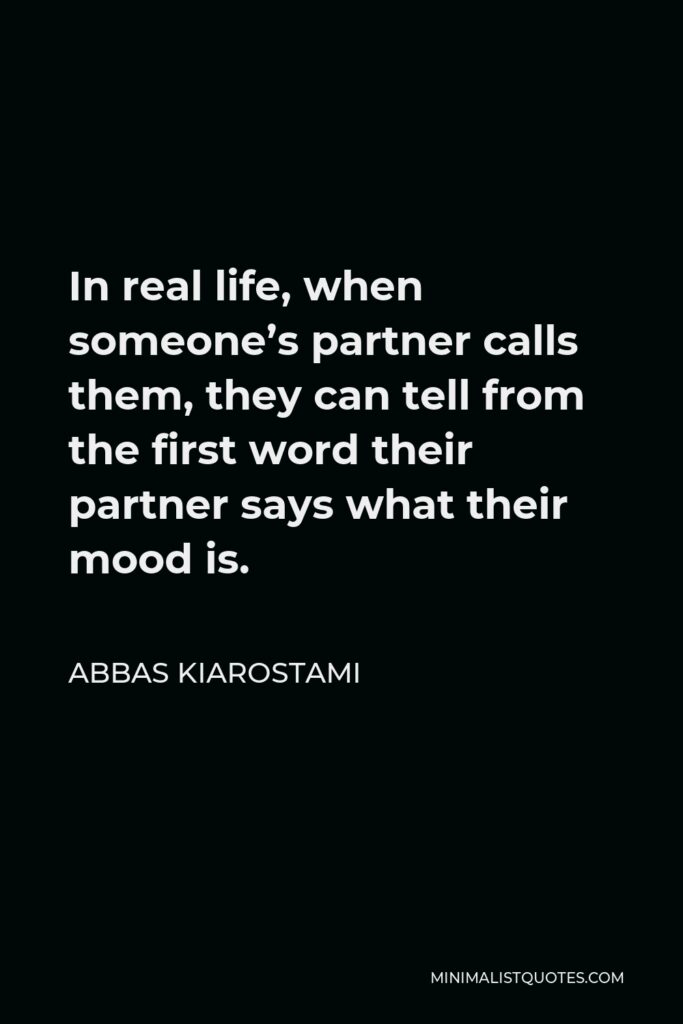

In real life, when someone’s partner calls them, they can tell from the first word their partner says what their mood is.
ABBAS KIAROSTAMI -





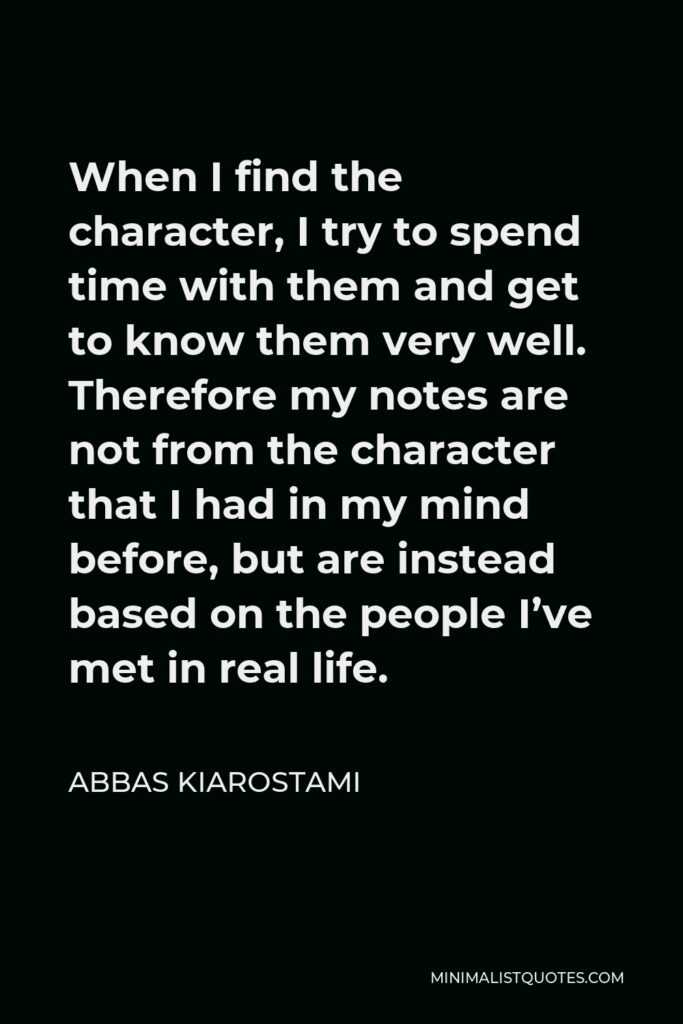

When I find the character, I try to spend time with them and get to know them very well. Therefore my notes are not from the character that I had in my mind before, but are instead based on the people I’ve met in real life.
ABBAS KIAROSTAMI -





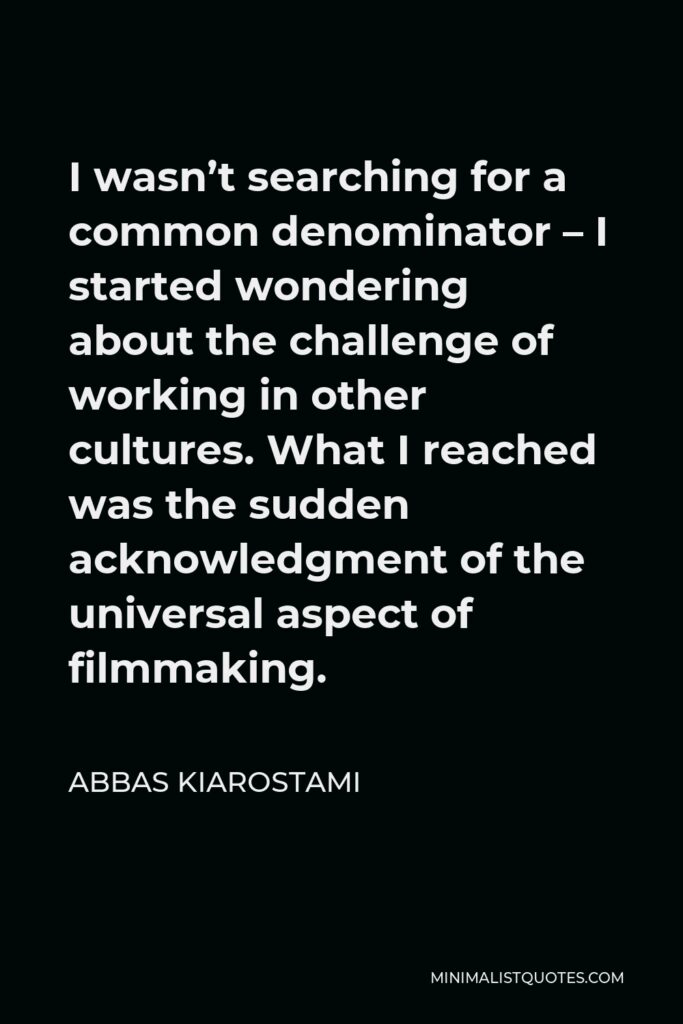

I wasn’t searching for a common denominator – I started wondering about the challenge of working in other cultures. What I reached was the sudden acknowledgment of the universal aspect of filmmaking.
ABBAS KIAROSTAMI -





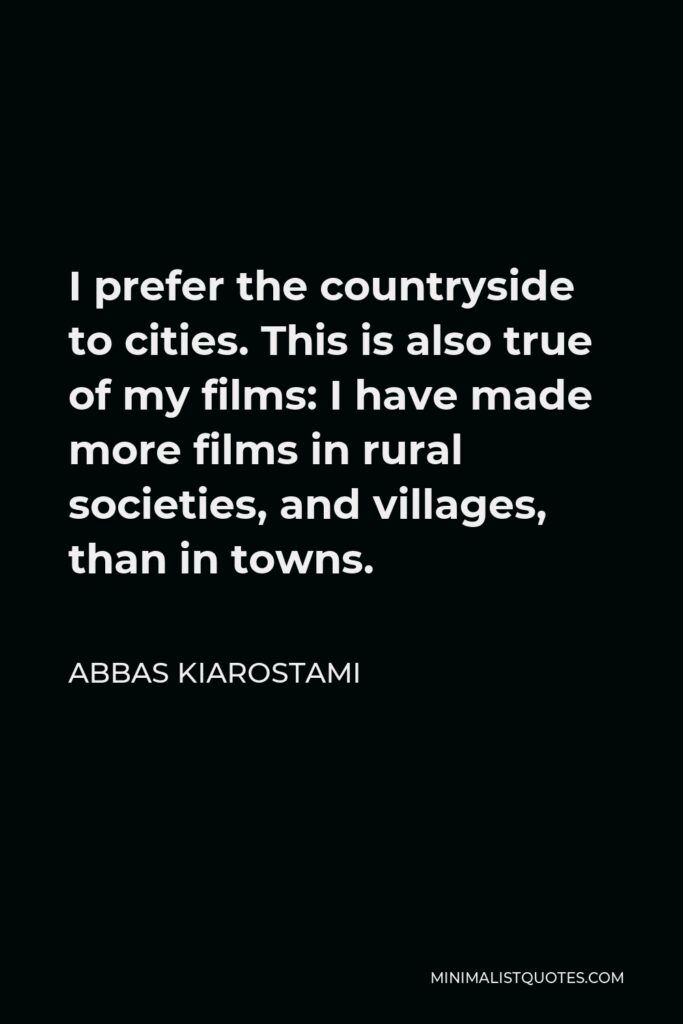

I prefer the countryside to cities. This is also true of my films: I have made more films in rural societies, and villages, than in towns.
ABBAS KIAROSTAMI -





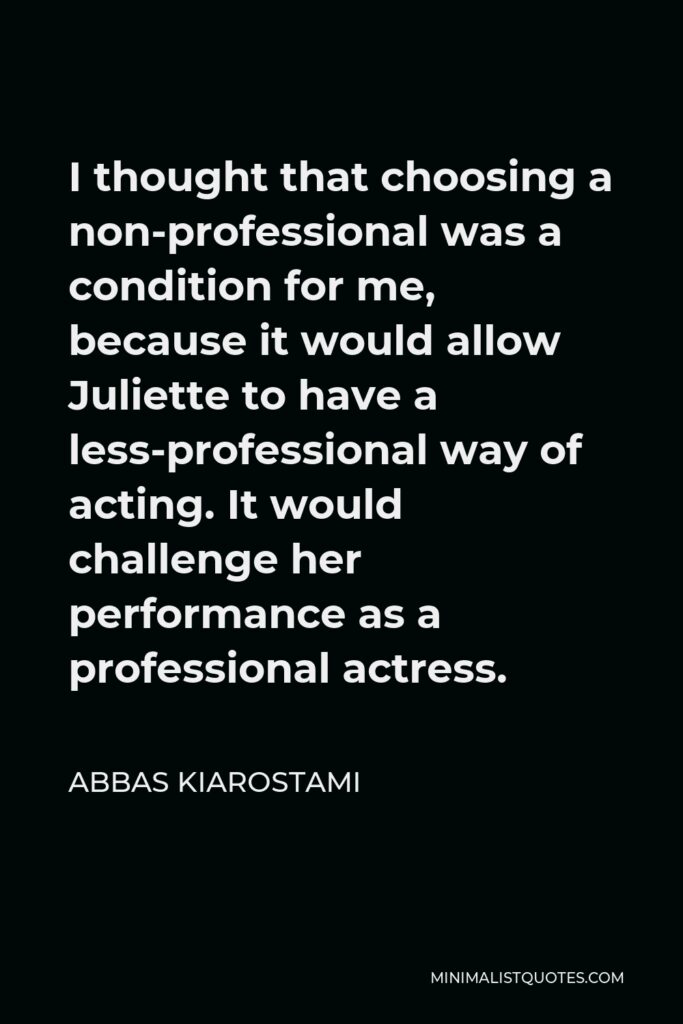

I thought that choosing a non-professional was a condition for me, because it would allow Juliette to have a less-professional way of acting. It would challenge her performance as a professional actress.
ABBAS KIAROSTAMI -





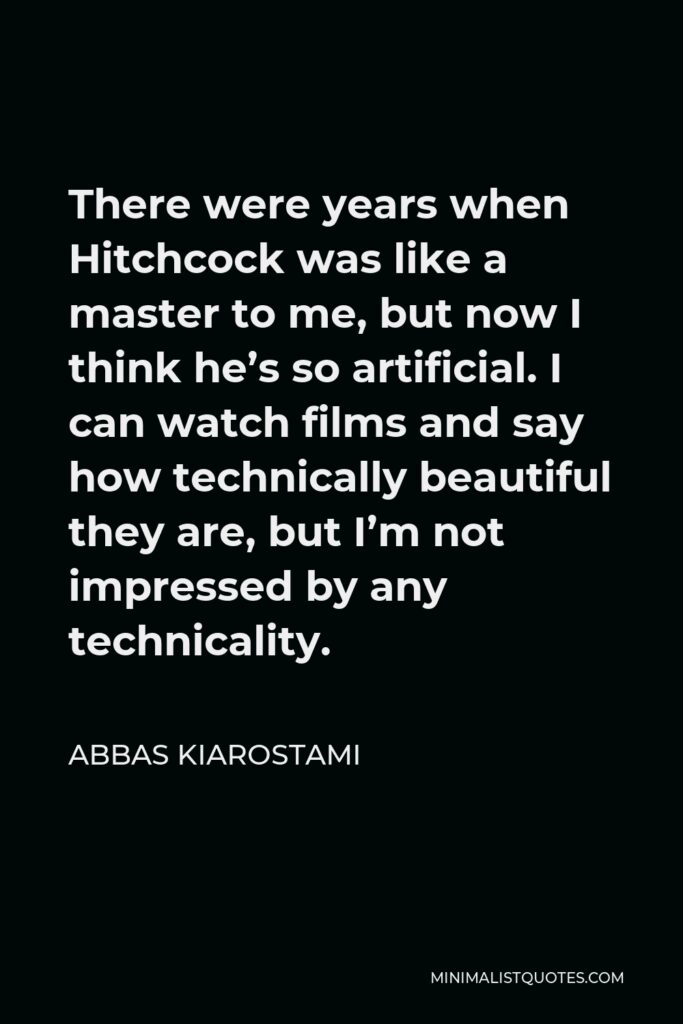

There were years when Hitchcock was like a master to me, but now I think he’s so artificial. I can watch films and say how technically beautiful they are, but I’m not impressed by any technicality.
ABBAS KIAROSTAMI -





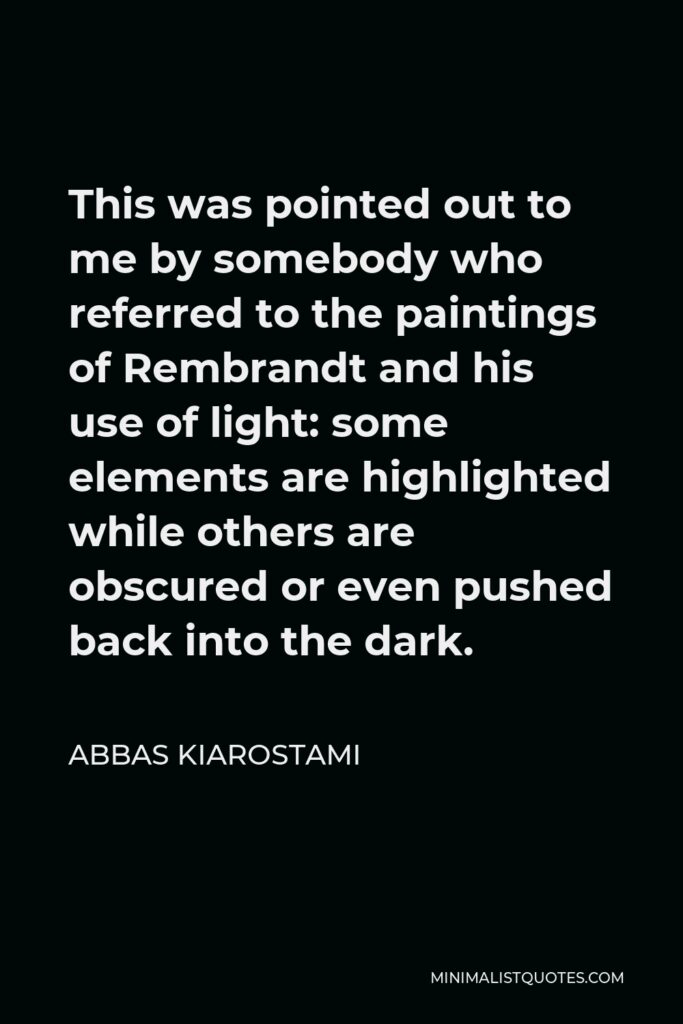

This was pointed out to me by somebody who referred to the paintings of Rembrandt and his use of light: some elements are highlighted while others are obscured or even pushed back into the dark.
ABBAS KIAROSTAMI -





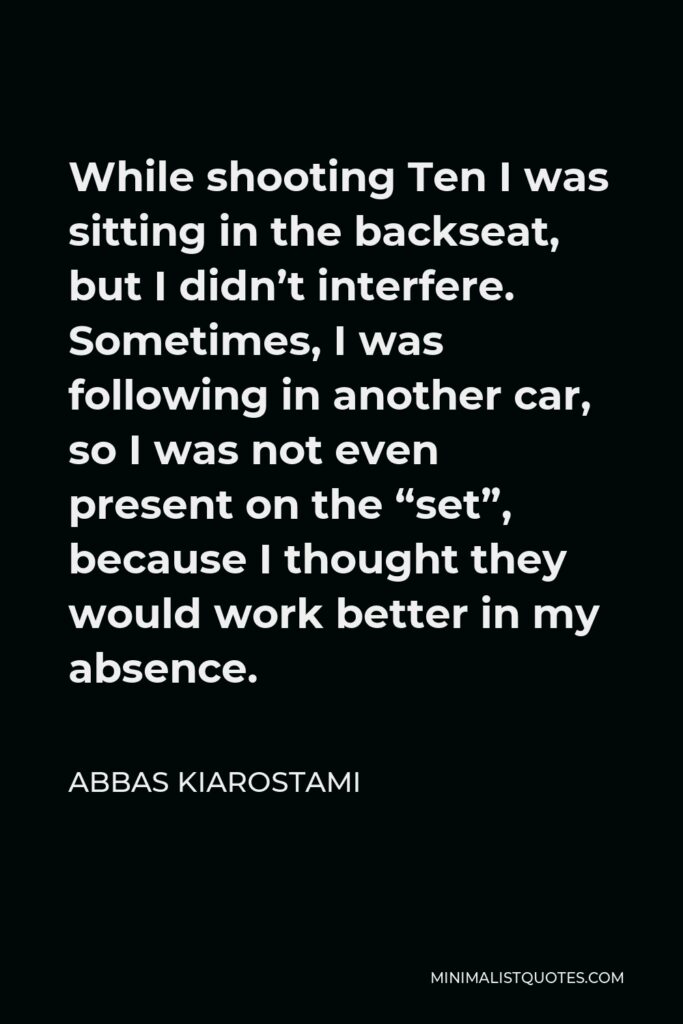

While shooting Ten I was sitting in the backseat, but I didn’t interfere. Sometimes, I was following in another car, so I was not even present on the “set”, because I thought they would work better in my absence.
ABBAS KIAROSTAMI -





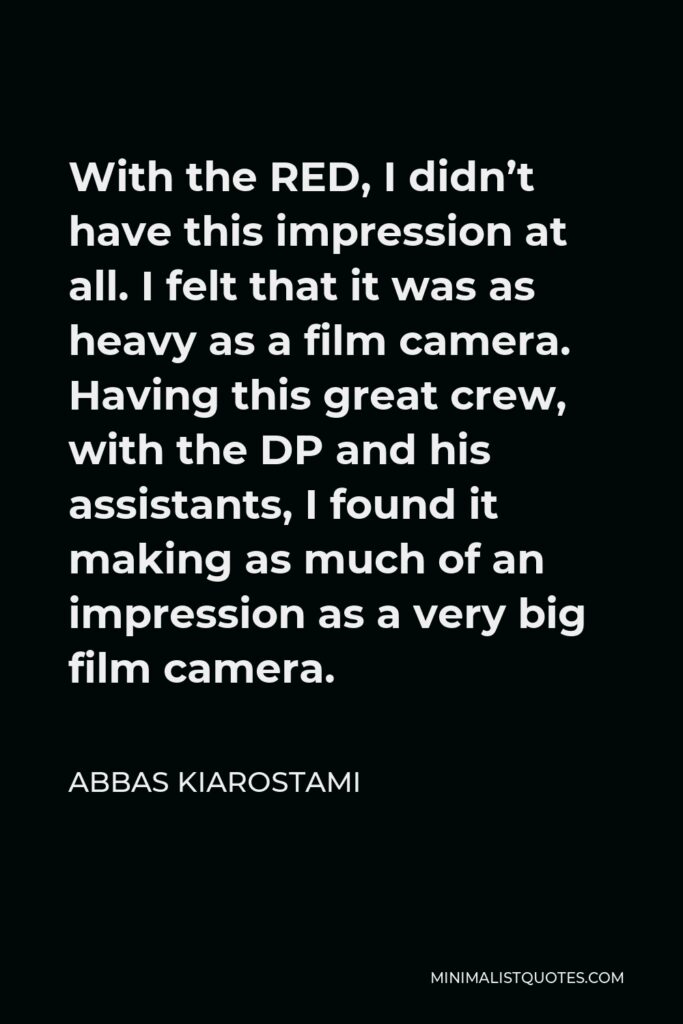

With the RED, I didn’t have this impression at all. I felt that it was as heavy as a film camera. Having this great crew, with the DP and his assistants, I found it making as much of an impression as a very big film camera.
ABBAS KIAROSTAMI -





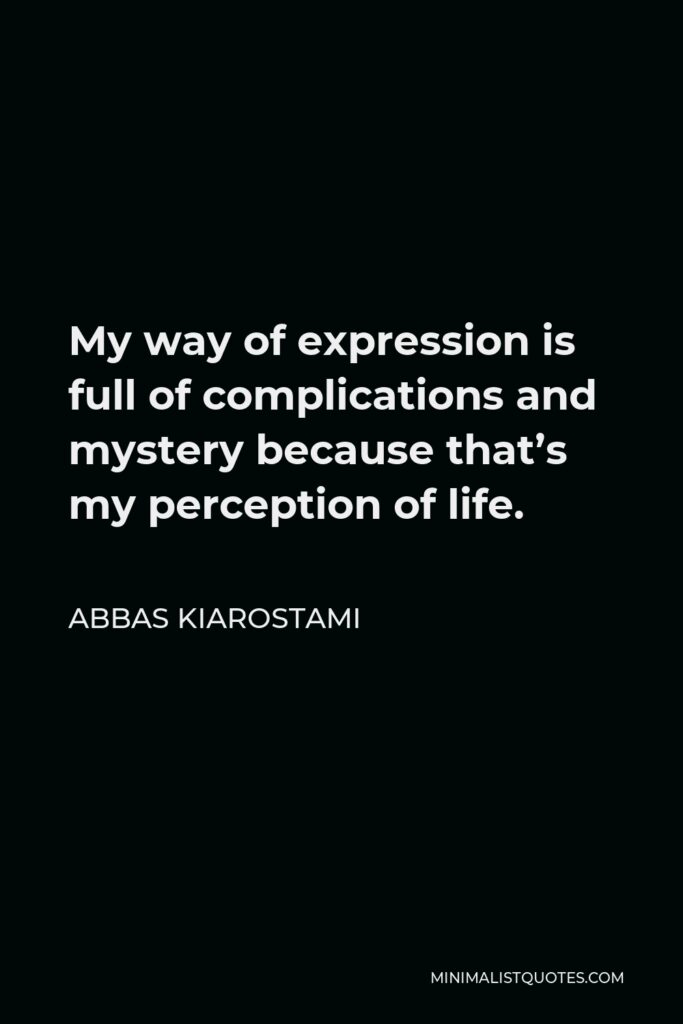

My way of expression is full of complications and mystery because that’s my perception of life.
ABBAS KIAROSTAMI -





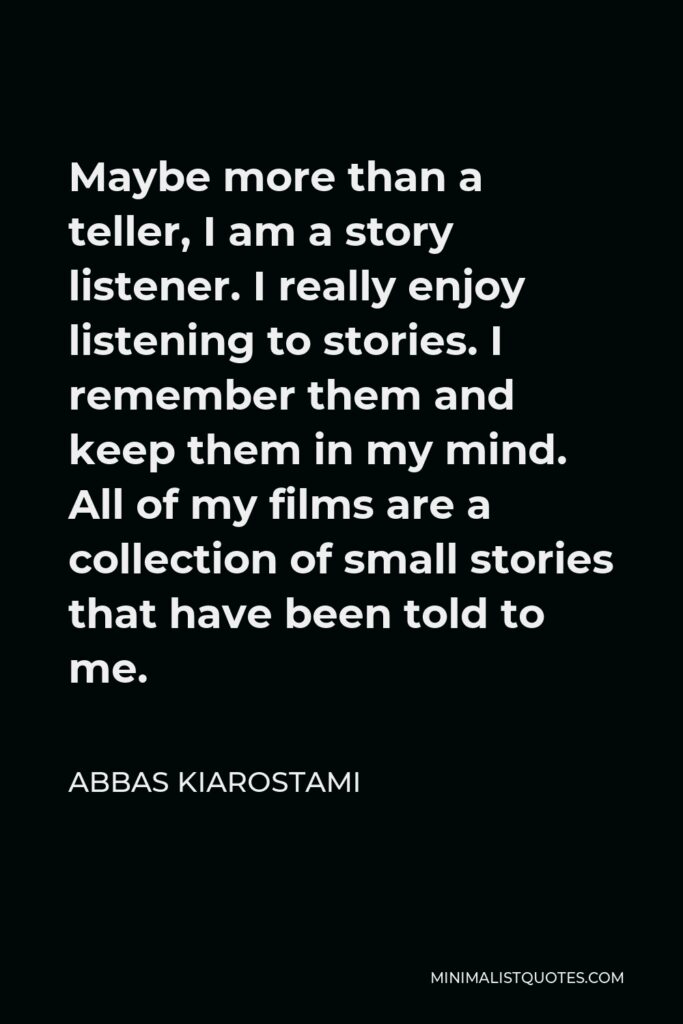

Maybe more than a teller, I am a story listener. I really enjoy listening to stories. I remember them and keep them in my mind. All of my films are a collection of small stories that have been told to me.
ABBAS KIAROSTAMI -





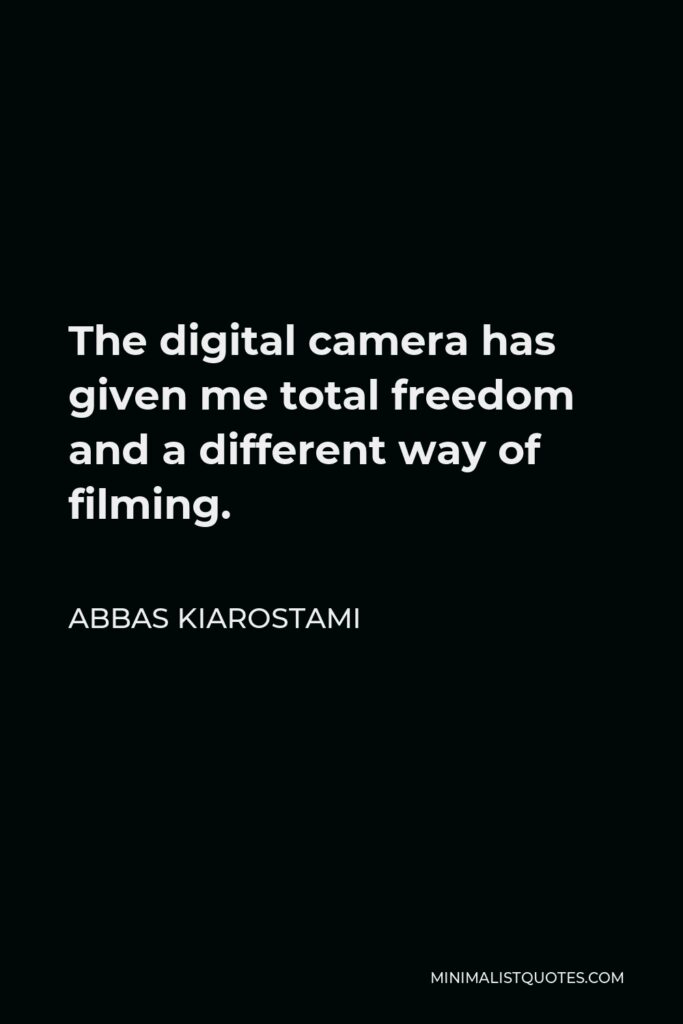

The digital camera has given me total freedom and a different way of filming.
ABBAS KIAROSTAMI -





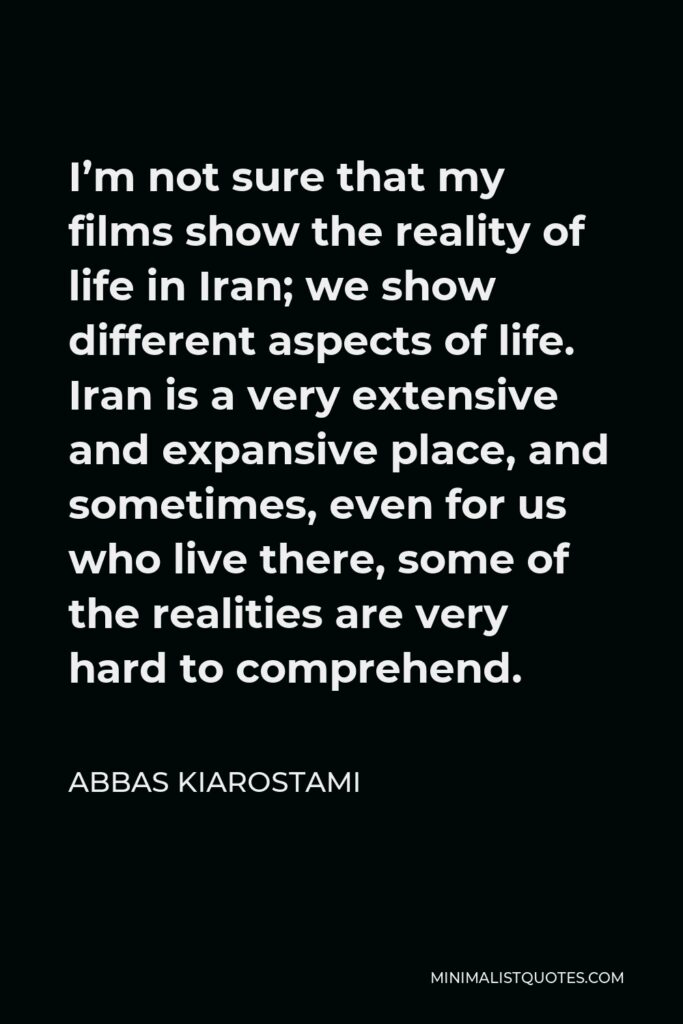

I’m not sure that my films show the reality of life in Iran; we show different aspects of life. Iran is a very extensive and expansive place, and sometimes, even for us who live there, some of the realities are very hard to comprehend.
ABBAS KIAROSTAMI -





![Abbas Kiarostami Quote - The [Iranian] government grapples with more important issues and we can maybe say that these films don’t really exist for them. It’s not about whether they like it or don’t; it’s just not very important to them.](https://minimalistquotes.com/wp-content/uploads/2022/04/the-iranian-government-grapples-with-more-importan-683x1024.jpg)

The [Iranian] government grapples with more important issues and we can maybe say that these films don’t really exist for them. It’s not about whether they like it or don’t; it’s just not very important to them.
ABBAS KIAROSTAMI
